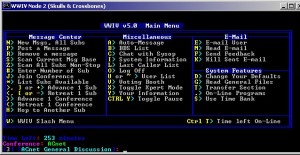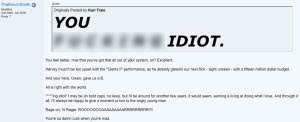I cook a lot more these days. Once you learn a few tricks, it’s the only sure-fire way to get what you want, when you want it, the way you want it. Of course, those tricks are not always obvious. But I’m getting ahead of myself.
I first started cooking for myself when I was in middle-school. I’d rush home after having ignored most of the bag lunch my mother had packed for me, and go right to the kitchen. Mom stocked the refrigerator with a large plastic bag of frozen hamburger patties. She was a frugal woman and made them herself. Then I’d grab this cute little frypan that was just the right size for a single patty, and throw it on the burner. I’d hit 10 for the highest level of heat, and then grab the bottle of A1 sauce.
I’d learned that I liked A1 on hamburgers. My dad introduced me to it. It had more kick than catchup, and when it crusted up on the meat it actually got a bit sweeter too. So with the directness that comes from unsupervised youth, I’d learned to just cook the frozen patty in a pool of A1 sauce.
That little pan spit and burped and smoked and sputtered with the meat occasionally bouncing back and forth under the saucy boil. The smoke was mostly whisked away by the grill vent, but even later in the evening I expect you could still smell the effects of my cooking. The burger finally made its way into the bun, a little more A1 added, and that was my regular after-school snack. Yeah, I didn’t worry about carbs, fat, sodium, or sugar in those days.
Hope you’re still with me, the gross part is over.
I do a lot more low-oil stir-fry these days. I have a very nice 14″ wide wok pan that is my go-to for just about everything. Only about 4″ of pan surface actually makes contact with the heating element, the sides of the pan about that are just radiating heat up from that area. I cook with lots more vegetables now too. They really ought to teach nutrition in school beyond just that dumbed-down division of meats, carbs and veggies. More than nutrition, they should teach how you can make the food you eat taste better.
For me, that started with understanding the effect of low heat. Subtle cooking, not overpowering the natural flavor with things that didn’t taste anything like what was being cooked. Letting the food warm slowly, gaining or losing texture and flexibility, avoiding scorching the exterior while the interior remained raw. Learning the difference, for example, between fried, grilled, and caramelized onions. One ingredient, three distinctly different results. Mostly due to time and heat.
Again, the subtle stuff.
Dialing it down, after all.
I was at the stove earlier this week when it all unexpectedly came together. I was caramelizing onions, something that takes a bit of patience but has wonderful results. Caramelized onions are the candy of veggies. You use really low heat, so it takes longer to caramelize the onions than to make the rest of the stir-fry.
I recalled how I tried to rush cooking things as a kid, to get on with it, get it over and start eating so I could finish eating and get on to something else. Thinking that, like some kind of race, and that I could get there faster if I put my foot down on the gas pedal. Turn the heat up, seems so simple, so obvious.
And of course, almost entirely wrong if you’re trying to prepare an enjoyable meal.
But what really struck me was how I’m starting, at this late date, to realize something else. You’re smart, you’ve probably already gotten here, but I need to finish this up and I’m not rushing it.
Life needs to cook on low heat as well. Life doesn’t do well on high heat. You need to stretch out the process, not delaying or stalling, but making sure you completely understand it. Applying just enough heat to get things done, but remaining in control, thinking through what you’re trying to do. Not just reacting quickly, not just turning the effort dial up and hoping for the best result. But understanding what the result you’re going for is going to look like. Maybe even what it’s going to feel like, to smell and taste like.
And learning the best methods for getting there. To realize you never stop learning, and if you’re smart you never stop trying new things just because the old way works “good enough.” Tracking your progress, making small adjustments, keeping everything in view and really paying attention. Slowing down can make it more enjoyable as well, of course it’s essential to know why you’re slowing down.
Living an enjoyable life is like preparing an enjoyable meal. Just the right amount of thought, intention, execution and focus on enjoyment.
Come to think of it, that goes for eating too. In life and cooking, you have to stop every now and then and smell the hamburger.
Ric Bretschneider
October 14, 2016






